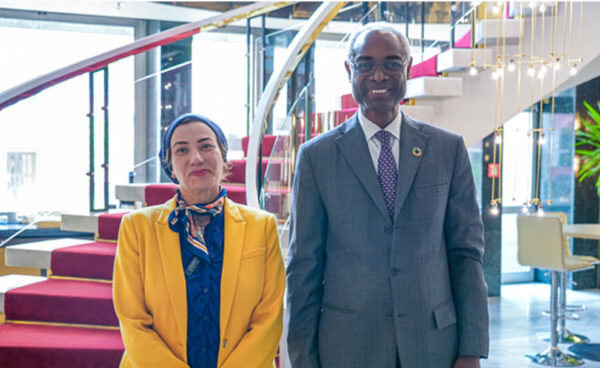Bonn, August 5, 2025 – The United Nations Convention to Combat Desertification (UNCCD) is undergoing a significant change with the appointment of Yasmine Fouad as Executive Secretary. The former Minister of Environment of Egypt is taking over from Ibrahim Thiaw, who has been in office since 2019, during a ceremony held at the organization’s headquarters in Bonn, Germany.
Ibrahim Thiaw, a Mauritanian national, has marked his tenure with increased mobilization around land restoration and resilience to droughts. Under his leadership, the UNCCD has supported major initiatives such as the Great Green Wall in Africa, the Green Initiative for the Middle East, and the International Alliance for Resilience to Drought, launched in 2022. He has also contributed to changing the perception of land: from an environmental problem to a key solution for sustainable development.
The Convention has also seen increased participation of the most vulnerable actors – local communities, indigenous peoples, youth, and women – in its decision-making processes. Promoting women’s land rights and integrating gender dimensions into desertification policies have been affirmed priorities, especially during COP16.
Despite the progress, the UNCCD has highlighted the low level of private sector engagement in land restoration, representing only 6% of global investments in this area. To address this, the organization has established strategic partnerships, such as the Business4Land initiative in collaboration with the World Economic Forum.
The new leader, Yasmine Fouad, has a strong background in environmental diplomacy. She chaired COP14 of the Convention on Biological Diversity and played a key role in COP27 on climate as an emissary of the Egyptian government, particularly in negotiations on climate finance and nature-based solutions.
In taking up her role, Yasmine Fouad has stated her ambition to strengthen synergies between combating desertification, climate change, and biodiversity loss, while calling for the definition of ambitious post-2030 goals. She has also reiterated the importance of giving a voice to the most vulnerable and building broad partnerships to restore ecosystems and improve the living conditions of the most exposed populations.
This transition marks a new stage for the Convention, which is celebrating its 30th anniversary this year and aims to play an increased role in global environmental governance.


